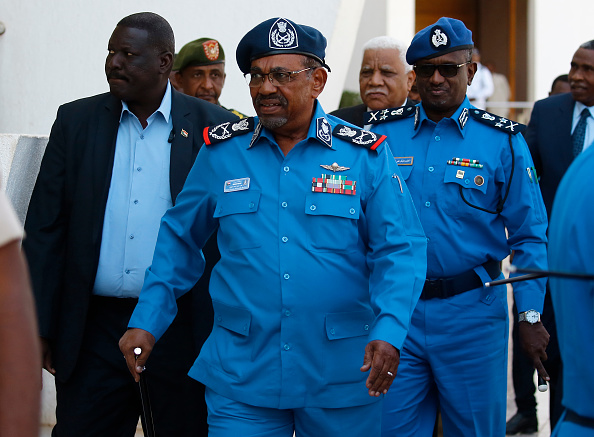
Sudan’s Bashir bans rallies, announces foreign currency ‘reforms’

Sudanese President Omar al-Bashir banned unlicensed public gatherings and gave sweeping new powers to police in a series of emergency decrees on Monday to counter the most sustained anti-government street unrest of his 30-year rule.
In line with a state of emergency declared last week, Bashir also gave the country’s security forces sweeping powers to raid buildings where “suspicious activities were being carried out” and also search people, the presidency said.
The decrees came amid fresh protests in various parts of the capital Khartoum, where security forces used tear gas against hundreds of students demonstrating inside the campus of the country’s oldest women’s university.
Prosecutors were given the authority to strip people such as lawmakers and military officials of immunity and set up special emergency courts. Publishing news that “harms the state or citizens, or calls for undermining the constitutional system” was also banned on the punishment of up to 10 years in jail.
Bashir also announced a ban on trading or hoarding fuel products and subsidized goods, and jail terms for people traveling abroad carrying more than $3,000 in currency or 150 grams of gold.
Deadly protests began on December 19 after the government tripled the price of bread and quickly evolved into demonstrations against Bashir’s rule.
In the face of public anger over Sudan’s economic woes, Bashir on Monday announced measures to tackle the foreign currency shortage.
Over the past two years, the foreign exchange market has seen high volatility, forcing the country’s central bank to devalue the local pound twice last year.
Hassan Bashir, an economics professor at the state-run Al Neelain University, said Monday’s emergency measures would hurt the economy by scaring away investors.
“Security measures will not resolve the economic crisis,” he said. “The situation in Sudan requires more openness and not more political and economic restrictions.”






